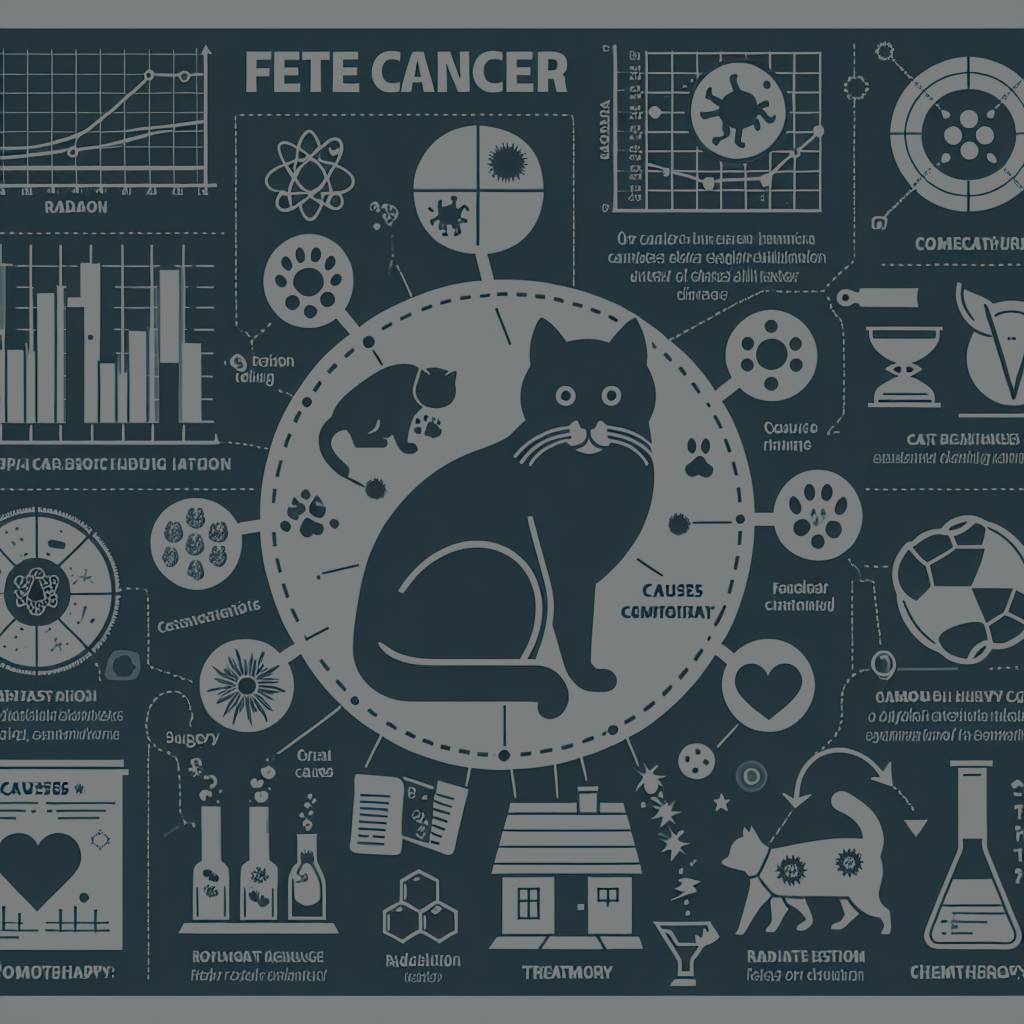
Feline Cancer: Understanding the Prevalence, Causes, and Treatment Options
Cancer is a devastating disease that affects not only humans but also our beloved feline companions. Feline cancer is becoming increasingly prevalent, and understanding its causes and treatment options is crucial for pet owners and veterinarians alike. In this article, we will delve into an in-depth overview of the prevalence and causes of feline cancer, as well as explore effective treatments that can help improve the prognosis and quality of life for our feline friends.
Feline Cancer: An In-Depth Overview of Prevalence and Causes
Feline cancer is unfortunately a common occurrence among our feline friends. Studies have shown that approximately one in five cats will develop some form of cancer during their lifetime. The prevalence of feline cancer has been on the rise in recent years, with factors such as environmental pollutants, genetic predisposition, and increased longevity contributing to its occurrence.
There are various types of feline cancer, including lymphoma, mammary cancer, squamous cell carcinoma, and leukemia, among others. Lymphoma is one of the most commonly diagnosed forms of cancer in cats, affecting their lymphatic system. Mammary cancer, on the other hand, predominantly affects intact female cats and is highly linked to hormonal factors. Squamous cell carcinoma, often seen in the oral cavity or skin, is associated with exposure to sunlight or certain viral infections.
Exploring Effective Treatments for Feline Cancer
When it comes to treating feline cancer, early detection and prompt intervention play a vital role in improving the outcome. Treatment options for feline cancer can vary depending on the type and stage of cancer, as well as the overall health of the cat. The primary treatment modalities include surgery, chemotherapy, radiation therapy, and immunotherapy.
Surgery is commonly used to remove tumors that are localized and have not metastasized. Chemotherapy may be recommended in cases where cancer has spread or when surgery is not feasible. Radiation therapy utilizes high-energy X-rays to target and destroy cancer cells. Immunotherapy, a relatively new approach, aims to enhance the cat’s own immune system to fight the cancer cells.
It is important to note that not all feline cancers are curable, but many can be managed effectively, providing a good quality of life for the cat. Palliative care, pain management, and supportive therapies also play a crucial role in the overall treatment plan, ensuring that the cat remains comfortable and well-cared for throughout their battle with cancer.
In conclusion, feline cancer is a prevalent and devastating disease that affects our feline companions. Understanding the causes and treatment options is essential for both pet owners and veterinary professionals. With early detection, appropriate intervention, and a comprehensive treatment plan, many cases of feline cancer can be effectively managed, improving the cat’s prognosis and quality of life. Regular veterinary check-ups, awareness of common symptoms, and maintaining a safe and healthy environment for our feline friends are key in preventing and managing feline cancer. Together, we can work towards minimizing the impact of this disease on our beloved feline companions.
Sure, here’s a SEO-friendly paragraph with embedded links to relevant Wikipedia articles that fit naturally into the content: — Speaking of feline health, you might be interested in learning more about the various types of feline cancer. For instance, the [Squamous cell carcinoma](https://en.wikipedia.org/wiki/Squamous_cell_carcinoma) commonly affects the oral cavity or skin of cats. Additionally, understanding the broader implications of [cancer in animals](https://en.wikipedia.org/wiki/Cancer_in_animals) can provide valuable insights into prevention and treatment. If you’re curious about veterinary practices, exploring [veterinary oncology](https://en.wikipedia.org/wiki/Veterinary_oncology) might be enlightening. Furthermore, staying informed about the general [health of domestic cats](https://en.wikipedia.org/wiki/Health_of_domestic_cats) can help you recognize early symptoms and seek timely intervention. These resources can be a great starting point for deepening your knowledge and better caring for your feline companions.
Certainly! Here is a new, SEO-friendly paragraph with embedded external Wikipedia links that align with the sample content you provided: “You might be interested in learning more about the broader implications of cancer in animals. For a deeper understanding, you can explore the Wikipedia article on Cancer in Animals. Additionally, delving into the evolving field of Veterinary Oncology might offer valuable insights into advanced treatment options available for feline cancer. To stay informed about your cat’s overall health and recognize early symptoms, you can visit the comprehensive guide on Health of Domestic Cats. These resources can help you better understand and care for your feline companions.”










